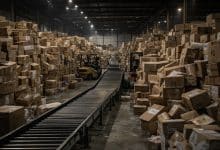Thai coffee lovers ditch pricey cups amid economic squeeze

Thai coffee drinkers are cutting back on their caffeine budgets as the economic crunch hits hard, with pricey cups over 100 baht losing their flavour. Korn Sanguankeaw, Vice President of the Specialty Coffee Association of Thailand, revealed yesterday, November 26, that cafés offering cheaper brews have seen explosive growth of 60 to 100%.
“Consumers prefer coffee priced at 60 to 80 baht, though they still splurge on special occasions or as a treat.”
According to data from Grab’s delivery platform, spending per coffee order has plunged from 250 baht to a modest 100 to 150 baht.
Yet, despite belt-tightening, the café scene remains resilient.
“Consumers are opting for alternatives like smoothies or Dubai chocolate.”
The coffee industry faces more than just economic hurdles. Korn highlighted a staggering 74.3% rise in global coffee bean prices, driven by climate change, poor crop yields, and a crushing 90% import tax. When combined with a 7% VAT and transport fees, the cost of 1 kilogramme of imported coffee beans now soars to 200 baht.
Thailand’s local coffee production falls short of demand, leaving the market to grapple with shortages and skyrocketing prices.
While café owners innovate to keep customers coming back, high taxes and global supply challenges threaten their bottom line. Korn warned that without policy changes, such as reducing the hefty import tax, café operators may struggle to sustain profitability, reported The Nation.

In related news, Pattaya held its Chon Buri Coffee on the Beach 2024 event last weekend from November 22 to 24 at Pattaya Beach, promising a unique blend of coffee culture and scenic beachfront experiences. The Chon Buri Coffee on the Beach 2024 is a joint initiative involving several key players: Chon Buri province, Pattaya City, the Tourism Authority of Thailand (TAT Pattaya Office), the Pattaya Business & Tourism Association, and the Café & Bistro Club.
In other news, Starbucks Thailand is brewing up a storm with plans to roll out 30 new stores annually, even as the country’s coffee market bubbles with fierce competition.
Latest Thailand News
Follow The Thaiger on Google News:


























